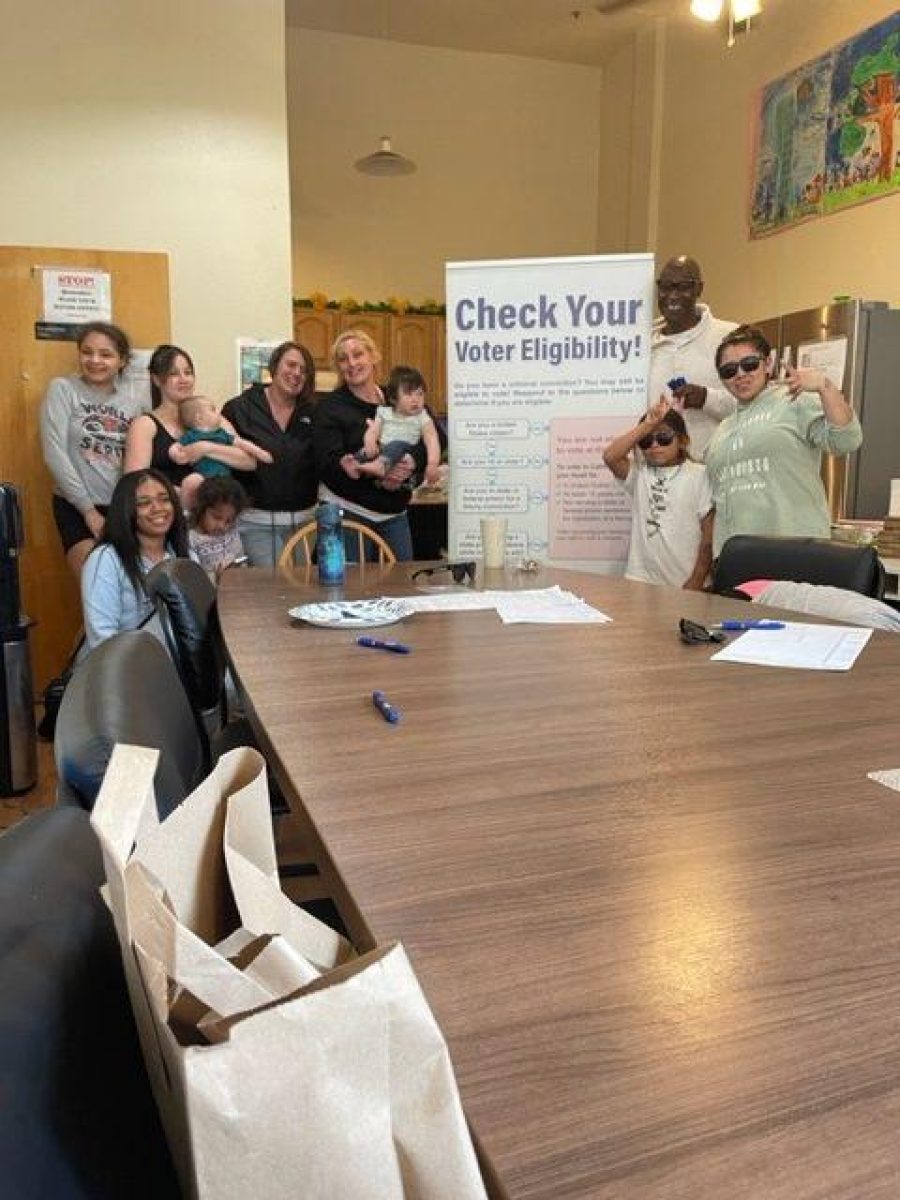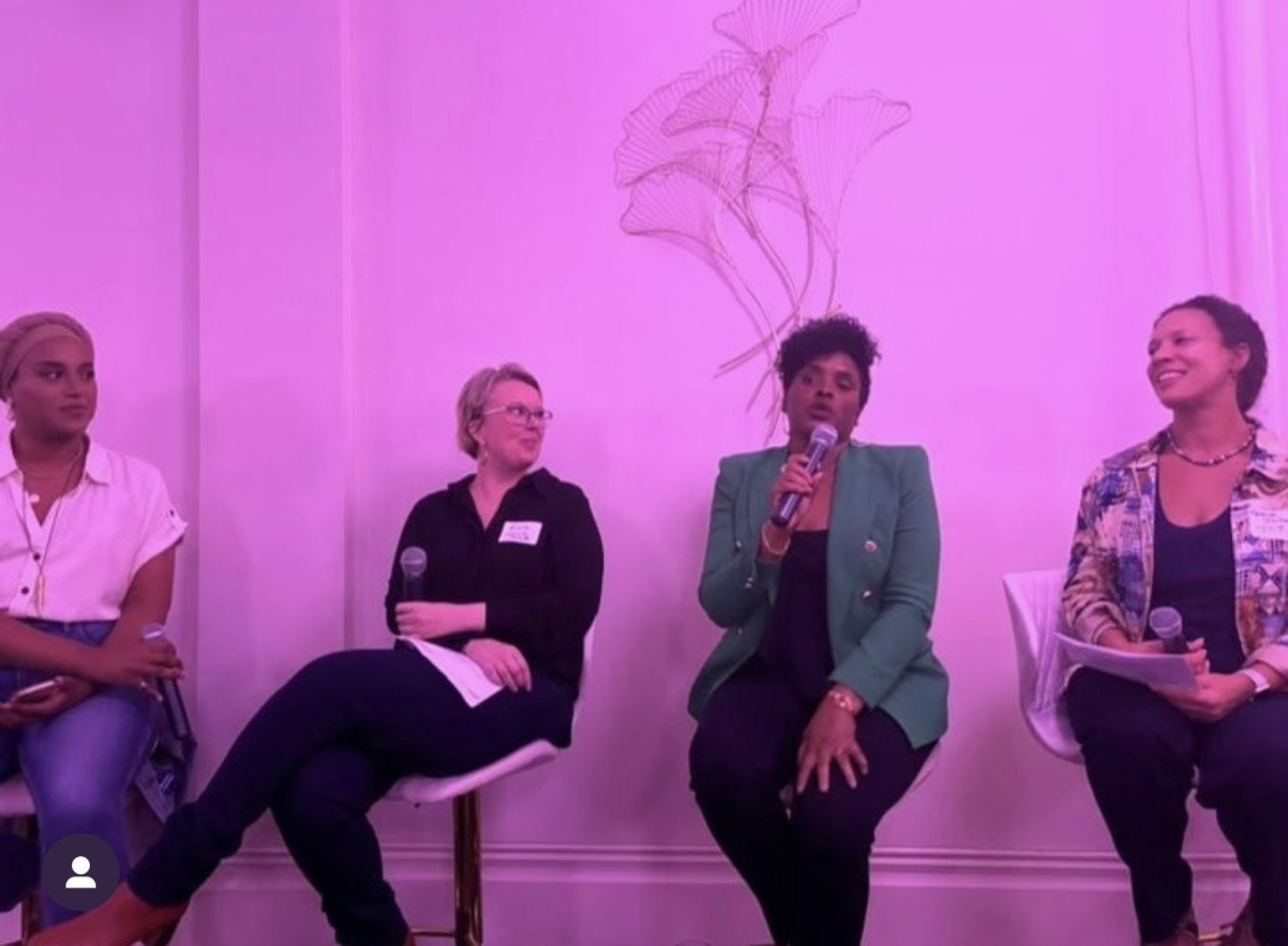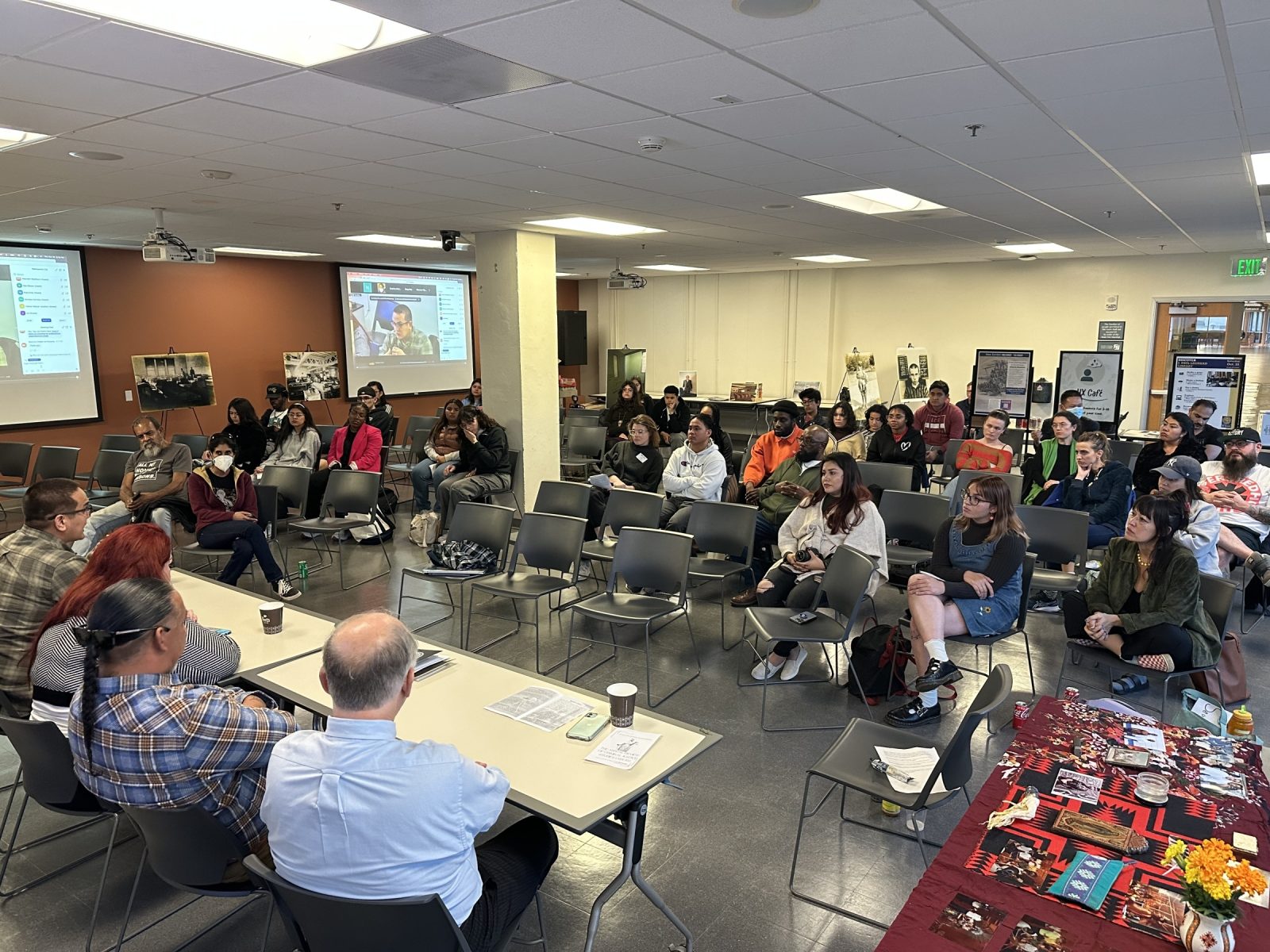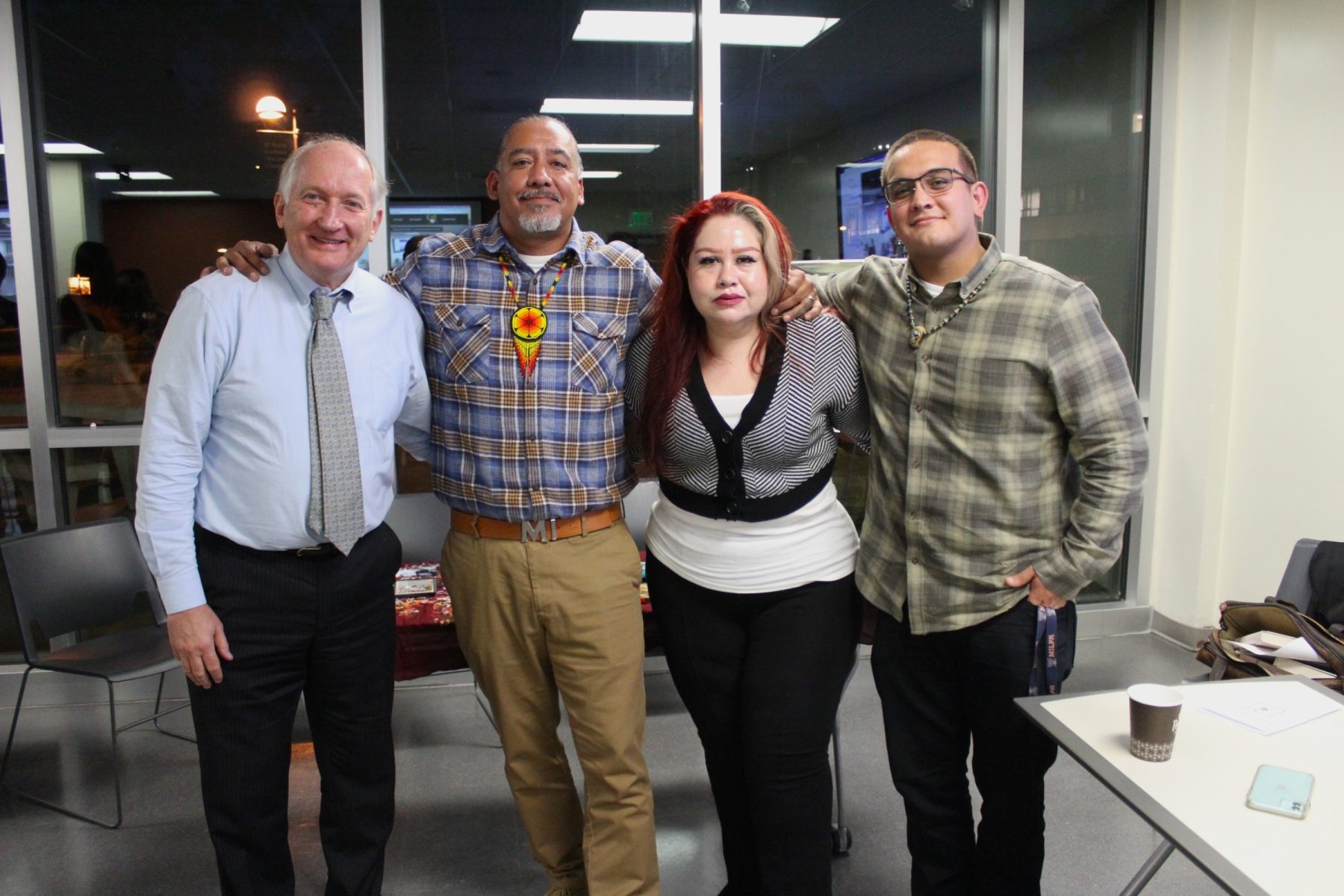Below you will find CJCJ’s newsletter with some fall highlights. In this issue: CJCJ’s Voter Restoration Project, Unique needs of unhoused women are elevated and heard, CJCJ hosts film screening and panel event at SFSU, and CJCJ’s Employee Spotlight: Booker Gray.
CJCJ’s Voter Restoration Project
Did you know CJCJ has a voter restoration project focusing on formerly incarcerated and justice-involved voters? We are proud to partner with the San Francisco Department of Elections to support their mission of providing equitable access to voting and election related services, and to conduct free, fair, and functional elections for the City and County of San Francisco.
For decades, we have worked with justice-involved individuals both inside and outside of correctional facilities. We have seen firsthand how the justice system disenfranchises. Even if an individual’s voting rights are restored, justice system involvement can lead to a feeling of their voice or vote not mattering. Considering that, throughout the state and nation, many laws and propositions have a direct impact on justice-involved individuals and their communities, it is critical that their voices are heard and elevated.
Previous legislation, such as California’s Assembly Bill (AB) 109 and Proposition 47, brought an end to unconstitutional overcrowding in California prisons. Proposition 57, which supported increasing good behavior credit opportunities for individuals convicted of non-violent offenses passed with 65% of the vote. In 2020, Proposition 17 amended the California constitution to allow people who are on parole to vote. It was estimated that the proposition would impact about 40,000 people in California.
Many formerly incarcerated or justice-involved individuals are not aware of their voting rights, and have not been encouraged to be civically engaged due to decades of disinvestment and barriers to voting. With that in mind, staff with CJCJ’s Voter Restoration Project are working citywide to register justice-involved individuals to vote in this next election cycle and to spread awareness about the voting rights of justice-involved and formerly incarcerated individuals. We reached out to the community through several partners, including The Minna Group, San Francisco Training Partnership, San Francisco Pretrial Services, and CJCJ’s alternative sentencing program, Cameo House.
Do you have any questions on voting rights for formerly incarcerated individuals? Please let us know. And while we’re on the subject, have you made sure you are registered to vote and that your address is correct with the state? You can check all that information here.
Click here to learn more about our Voter Restoration Project for justice-involved voters.
“Exploring the Realities and Finding Hope for Unhoused Women” Panel Discussion as Board of Supervisors Place Housing Bond on Ballot
“Unhoused women in San Francisco are consistently unseen, unheard, and undercounted.” This was shared by our Cameo House program manager, Rebecca Jackson on October 18th at the “Exploring the Realities and Finding Hope for Unhoused Women” event in San Francisco. This statement underscored the urgency of supporting the approximately 3,000 counted unhoused women in San Francisco are vying for just 99 shelter beds. This event was hosted by The Academy in San Francisco and was moderated by Honey Mahogany. The list of incredible panelists included Kara Zordel from Community Forward SF, Kimberly Ellis from The San Francisco Department on the Status of Women, and Rebecca Jackson, CJCJ’s Cameo House Program Director and longtime women’s advocate.
The panel discussed the unique issues that unhoused women face every day in San Francisco, as well as system wide solutions and meaningful, individual actions that would support this vulnerable population. These ranged from contacting local representatives to urge their support, to uplifting the programing and community-based alternatives we know are working to keep families safe and together.
Cameo House remains one of the only alternative sentencing programs for unhoused women and their children in San Francisco. If you would like to support CJCJ’s critical work through the Cameo House program, please make a donation here. You can also learn more about our program and get involved on our website.
Did you know CJCJ is a founding member of the SF Women’s Housing Coalition? For years, we have been asking the city to show their commitment to vulnerable by dedicating funds to support housing for those experiencing homelessness, as well as victims and survivors of trafficking and domestic violence. We are happy to report that on November 7th, a $300 million housing bond was passed by the Board of Supervisors, with $30 million dedicated to women! These funds will not only support the creation of new affordable housing, but will also support the preservation and rehabilitation of existing affordable housing in the city. This is a win for the women and families that we work with at Cameo House. Long-term investment will help us build lasting solutions. Below is a brief comment from our fearless women’s advocate and Cameo House Program Director, Rebecca Jackson.
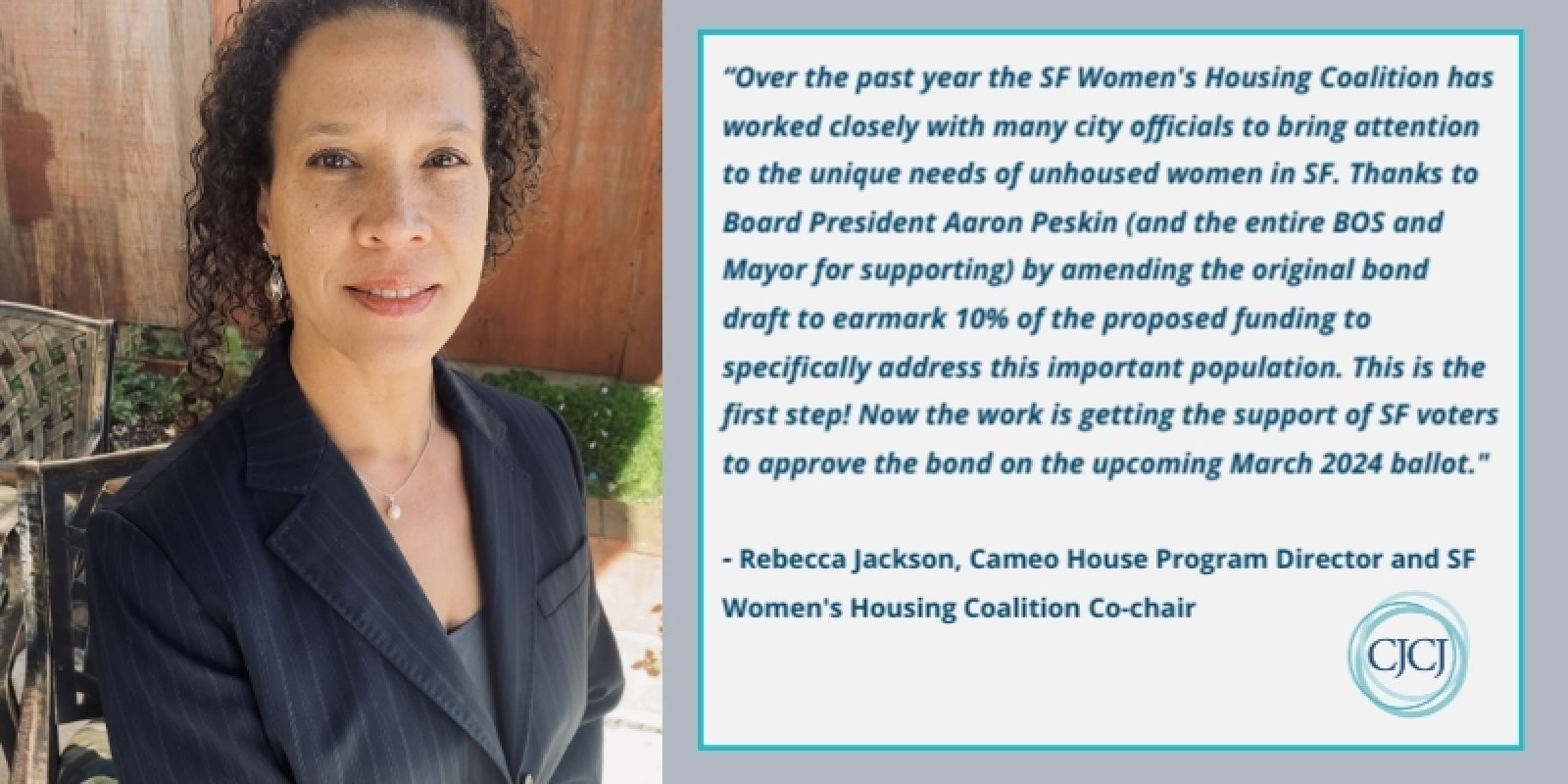
You can learn more about Cameo House, and our other direct service programs on our website. Be sure to follow us on Instagram for more photos and Facebook for upcoming event info as well.
Beyond Repair: 132 years of Brutality Inside CA’s Youth Prisons
On October 26th, CJCJ teamed up with SFSU’s Criminal Justice Studies Department to host a film screening and panel discussion on the abusive history of California’s failed youth prison system. On display were CJCJ’s historical archive pictures of various youth prisons. The event started with a brief overview of these failed systems leading up to the 1970s. What followed was a partial screening of the documentary, Tattooed Tears. This documentary was filmed inside of the Youth Training School in Chino, CA in 1979. You can watch the documentary here.
Our Executive Director Daniel Macallair has been a guest lecturer at SFSU for over 20 years. He teaches courses in juvenile justice reform, as well as California adult and youth corrections policy, community corrections, and sentencing policy. You can find more information about his work and his SFSU classes on our website. Historical knowledge, research, and archival documents, paired with direct experience is a powerful public education tool for exposing the state sanctioned child abuse that occurred for over a century through our state’s youth prison system.
Throughout all of CJCJ’s work, we have lifted up the voices of those with direct experience. With that in mind, for the second half of our event, we held an intergenerational panel discussion with former wards of the state on their experiences inside California’s youth prisons and the powerful work they are doing now for juvenile justice reform and policy advocacy. We should be listening to those with experiential knowledge of these punitive systems as we attempt to imagine new futures beyond youth incarceration and towards investment. We extend our gratitude and appreciation to our guest panelists pictured below, Edgar Ibarra Gutierrez, Claudia J. Gonzalez, Israel Villa and Daniel Macallair for sharing with us their wisdom and experience.
Photo shows from left to right, Daniel Macallair, Israel Salazar Villa, Claudia J Gonzalez, and Edgar Ibarra.
Thank you to everyone who attended in person and on Zoom. We appreciate your attention and sensitivity to the subject. Below is a link to a slideshow with some of the historical photos we had on display at the event, along with some information for context. These photos are from CJCJ’s archive of historical documents and photos. We are also pleased to share a recording of the slideshow and our esteemed panel below.
Click here to watch our slideshow of historic photos
Beyond Repair link for slideshow and full-length panel discussion
Stay tuned for more events like this in the future. Thanks again to our partners and colleagues for their attendance and support.
Want to see more photos from this powerful event? Check out our Instagram posts for more!
CJCJ Employee Highlight: Booker Gray, Assistant Director of Juvenile Justice Services
CJCJ is excited to introduce you to our Assistant Director of Juvenile Justice Services, Booker Gray. This is our space to meet the amazing individuals who work at CJCJ!
Our Detention Diversion Advocacy Program (DDAP) was created 30 years ago, as the first program of its kind in the nation. It reduces unnecessary youth detention and lengths of stay, and increases community engagement among youth coming out of the juvenile justice system. Using a combination of assessment, planning and intensive case management, DDAP is recognized as a national model by the United States Department of Justice. Below you will hear from our Assistant Director of Juvenile Justice Services at DDAP, Booker Gray on how he sees and describes his work. Please note, this interview was recorded and is transcribed below. You can watch the full video on our YouTube channel here.
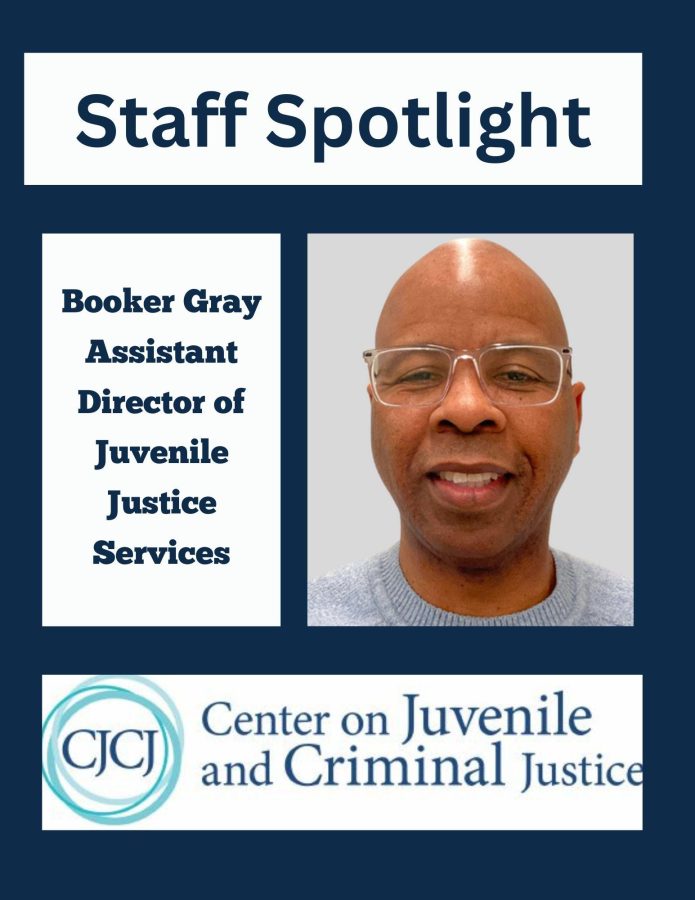
Name: Booker Gray
Job Title: Assistant Director of Juvenile Justice Services
Introduce yourself to us: I’m Booker Gray. I’m very energetic. I love the work that I do with the young persons that I deal with. I just have a lot of energy and enthusiasm that they’re going to make positive changes in their lives. I really truly believe that with the support, the young people do need some support around this, it takes a village, and at the end of the day, I’m only one person but I do collaborate with other organizations to try to meet the kids where they’re at and get them to achieve their goals. So that’s who I am, and I just have a passion for working with these young people and trying to support this is something I can see myself doing for a very very long time I feel like this is just the beginning and I’m learning.
Behind the scenes fact about you: One thing about me that I do behind the scenes, I enjoy watching movies with subtitles. International movies really draw my interest, and just seeing the world in another’s perspective I really enjoy that I spend a lot of time watching movies I love to read, I’m a pretty extensive reader. And I also enjoy authors. My favorite author is actually Walter Mosley
How would you describe your job to a friend? I would say I work collaboratively with the judges, attorneys, teachers, in and out of county working with young people that are having challenges within their communities. And I try to remove any possible barriers that are preventing them from some of their goals that they want to achieve.
Why is this work important to you? Actually, I had a young man ask me that, Why do I do the job? My response was that “I am you and you are me”. I come from similar backgrounds as some of the young people that I work with, I’m just trying to give them a different direction on how they want to proceed with their lives. Give them something that they never had, maybe that I didn’t have, that I’m working with them on achieving some of their goals. Whether it’s college, or just graduate from high school, or whether it’s work related- whether it’s a trade, or something along those lines. It’s been a great motivation for me, and it’s something that I feel like I have a gift for doing I’m trying to do it at the best of my ability and being able to support the young people that I work with.
Dreaming out loud: If you were given unlimited funds to build out part of your program, what would you create and why? That’s a very good question! I would say I would start off with maybe having a few more staff members within our organization with the services that we provide. I think the more services we could provide would be very very beneficial to the organization. I also see that there’s some needs that are being worked on with that I if I had that type of leeway to spend, and things of that nature, I really believe that I would like a program for driving. A lot of the young people have a hard time getting a driver’s license and if we have some type of a driving course within the organization that would be a huge help. Also funding for emergency housing, there’s definitely a need for that, that I see. So that we wouldn’t have to look for outside sources. I would definitely, definitely select and look for two licensed social workers within our agency. I think that would be great, I think that will build up a lot of support within our agency. I would continue to also want to work with in and out-of-county programs.
Want to watch Booker’s video interview in its entirety?
Would you like to learn more about the incredible work we do at DDAP? Check out their program page here.
